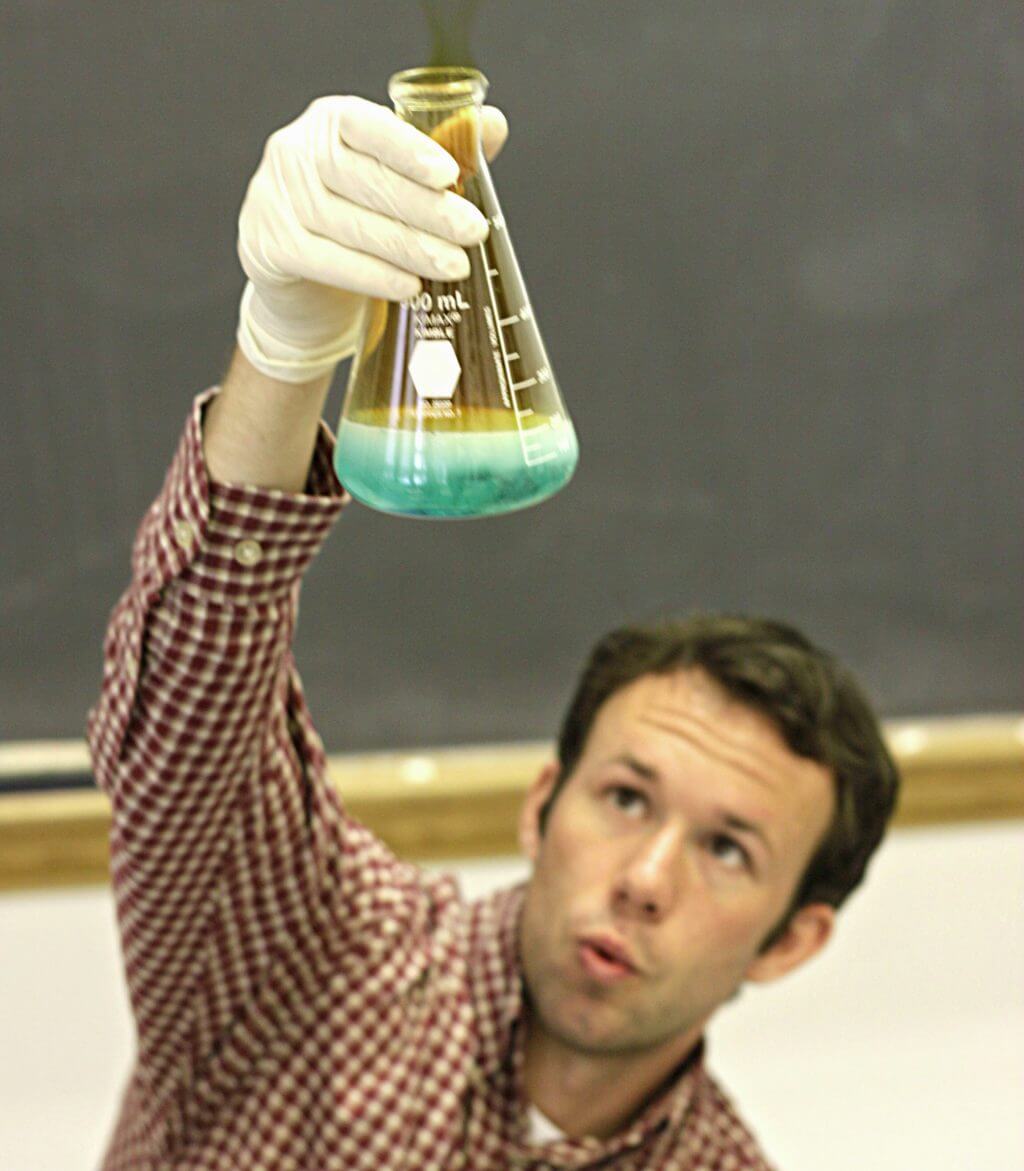School Subjects
Board & Administration
Teaching & Learning
Staff Development: Empowering the Educator to Engage the Learner
Howard Lichty July 8, 2021The process of becoming a better teacher holds so much potential for enjoyment and inspiration, especially when a group of teachers grows together. An administrator can help give this process the vital initiative and structure needed to unlock the potential. In this video, Howard Lichty gives his advice and suggestions for staff development, drawing from his experience as a school administrator at Countryside Christian School. He reflects on the importance of seeing one’s own role properly, of delegating responsibility and drawing out the specific expertise of teachers, and of making growth a shared endeavor. He gives many practical examples of how to work toward these goals.
When I first started doing some staff development sessions probably 10, 12 years ago, we, as my typical fashion is, I probably went into it too gung-ho and scheduled way too many and didn’t do a very good job with them, and staff probably ended up being fairly—maybe disillusioned is too strong of a word— but we’re real enthused with staff development. That being said, probably the best way to judge the effectiveness of our meetings would be to talk to the staff here rather than my own personal opinions.
Schedule
I think we’ve settled into a rhythm where we try to have between four to six sessions a year (a school year). Here at Countryside we have a staff meetings at 7:30 in the morning. On this year it’s a Wednesday morning. We have them weekly for about an hour. So when I make up the staff meeting schedule, we will schedule these into that schedule for the year, trying to front load them to the beginning of the year, in the middle of the year, rather than the last two or three months.
Administrators Are Not the Source of All Knowledge
If I think of hints to someone starting doing some staff development or if you’ve been thinking about it, a couple of things that I’ve maybe personally struggled with in doing staff development is just recognize that you don’t have to be the sole source of knowledge. I think that’s the biggest trip-up that we can maybe get… The biggest trip-up we can have as administrators is to think that we have to be the source of all the knowledge. And that’s just not true. And when you think of trying to build your staff team, you want to pull from the strengths from your staff as well, not just making them dependent on yourself. And so I think I erred at the beginning of thinking I had to be the source of all the ideas and all the knowledge, and that’s just not–that’s not healthy. And it tends to, you know, I get fatigued with it and staff get fatigued with listening to me talk as well. Whereas as your teachers will be able to contribute a lot of things.
Delegation
The thing that if you do pull other people in is you can delegate it, and that gives them the responsibility. So a couple… maybe an idea is if you have six sessions a year, if you plan on bringing one or two guest speakers in for two of them, and you plan on doing two sessions and then delegate one or two to one of your staff members—maybe an individual. And then all of a sudden staff development becomes much less onerous on you as the administrator, and you’re drawing from a wide group of people, which tends to keep it—you’ll be able to focus well on what you’re presenting.
Schedule Early
I also would suggest planning it out at the beginning of the year, get it on the schedule. Get it in your calendars. Have it on a scheduled day, not something that’s flexible, that can be… you’re just going to try and fit it in sometime throughout the year. Because we all know that that’s just not going to happen, and it won’t get done. So beginning of the school year, sit down and plan out the schedule. Delegate the people. Contact who you want to have come in. And have it all squared away before the school year starts.
First Aid Training
When it comes ideas, we’ve done a lot of different things. And like I said before, some successfully, some not successfully. But some ideas, we haven’t actually done this one as a whole staff, but I know schools that do. And that is to take first aid training. Have everybody do a first aid course of some sort. I think that’s an excellent thing.
Child and Family Services
In Canada here, Child and Family Services is a resource that we sometimes need to touch base with or we need to be up to date on some of the policies and things. And so maybe having a representative from them that you trust come out and just speak to your staff about issues and things that they need to be aware of.
Software
Something that we’ve done, if we introduce a new piece of software into the school or maybe a new piece of hardware, is we’ll take a staff development time to train on that software, on that piece of hardware, to learn how to use it. We had a dad come in and give us a teaching on how to use Microsoft Outlook. Some of the staff are very proficient already. So was this a boring, staff development class for them? Yeah, probably others were newbies at it, and so this was a training environment that we could either be benefited or we could benefit others by helping them along.
Staff Strengths
Pull from your staff strengths. Maybe you have someone on your staff team who is just a really good art teacher or things, and they can share with other teachers little techniques that can be useful in the classroom for teaching art or giving some art ideas. A number of our staff here at Countryside have presented at Faith Builders throughout the years. And one thing that we like doing for staff development is we’ll have them redo that presentation here for the staff team and then we benefit because not everybody from here goes to Faith Builders for the Teachers Week or similar. And so we’ve had them redo that. So we’ve had sessions on writing rubrics or visualizing math and working with math. I did a session on understanding yourself as a teacher, which we also did here as a staff team as well.
Resource Room Teachers
I’ve also had over the years our resource room teachers talk through some of the different resources they’re using and explaining how the resource that they’re using maybe emphasizes or works with an area, whether it’s in phonics or in spelling. That is not necessarily where it’s approaching the curriculum from a different perspective and helping with students who struggle. And what we’ve been able to do with that is being able to take some of those ideas that are used in the resource room. And if it’s a great idea, we’ll incorporate it into the classroom as well. And just to make more effective learning as a whole.
Teach Like a Champion
I think probably the most successful staff development sessions we’ve had here at Countryside revolve around the work and the book called Teach Like a Champion. And the way we’ve utilized this is initially we brought it in as a as a staff book that we read through the summer and then came back at the beginning of the year. And we worked our way through a number of the techniques in the book. That was OK. But it has become more effective over the last couple years to just cycle back through those—through that book. And this is where I’ve pulled in our staff team and I’ll just say I’ll tap someone on the shoulder. I’d like you to pick one or two techniques and study it and be prepared to present that technique to the rest of the staff. And then we’ll have a little bit of time of discussion together. But if we have two techniques in a morning that covers an hour, and we have a lot of good discussion. We talk about what this looks like in the classroom, and it varies from grade one through grade 12. But there’s a common theme that that works. And the feedback that I get from the staff is that these are just very practical sessions and that they always come away with one takeaway that they’ll probably go right to the classroom and start utilizing it that day. And so it’s just an excellent source of tidbits and ideas for classroom management or effectively communicating with your students. And we just need to hear this over and over again. And so I can see Teach Like a Champion being a part of our staff development on an ongoing basis year by year that probably will have two or three days that throughout the year that we’ll just have those as topics. And so that has been a very effective one for us here as a staff.




Leave a Reply